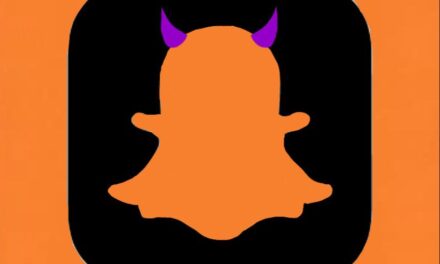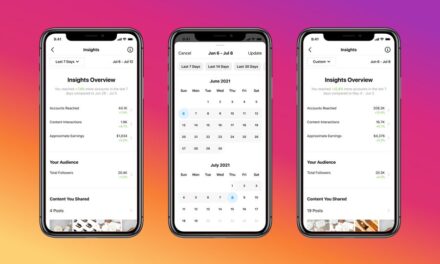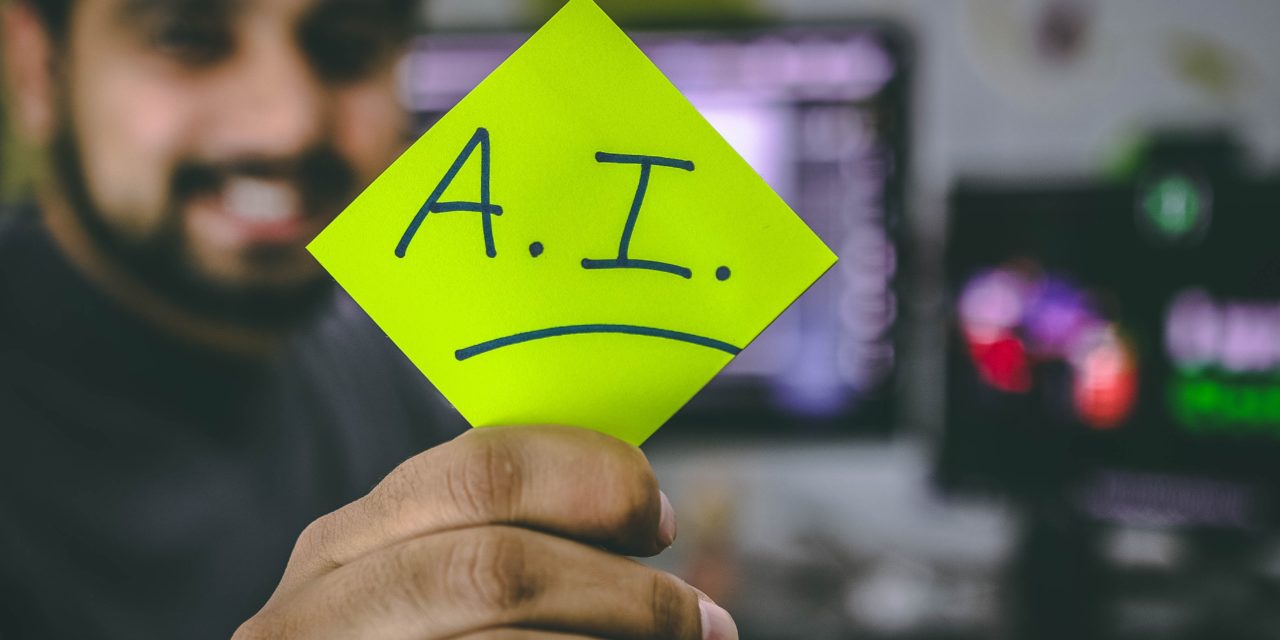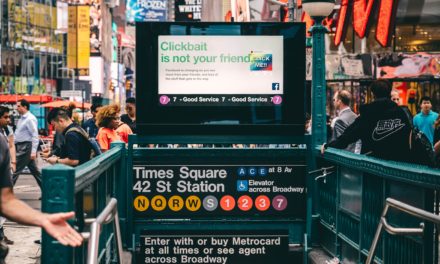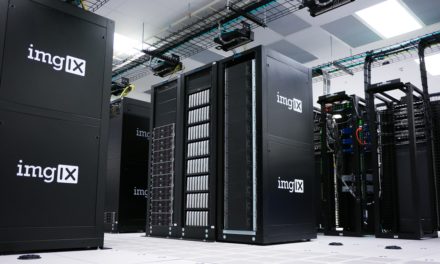By Evan Brown
Artificial intelligence has, irrefutably, revolutionized our lifestyle as well as business processes, including digital marketing, in ways once impossible to imagine.
Artificial Intelligence… This long, wordy term may sound perplexing to you, but what’s more perplexing is the fact that we are using AI technology every day and most of us didn’t even realize it till now.
Surprised? Let’s just take a reality check.
Think of all those times when Gmail suggested you smart replies for an email or Spotify recommended new releases and old favorites as per your music taste. Artificial Intelligence lies behind all this; it capitalizes on the algorithms that determine our online activities and thereby makes suggestions relevant to how we behave online.
AI has overshadowed the app industry to get deep-rooted into our lives. Google Maps app uses AI to assess the traffic conditions on the roads and propose quickest routes to its users. Similarly, the LENS tool in Pinterest identifies the images and provides similar image results to the user.
How do you keep your employees focused on continually improving the service they provide to each and every client? Learn how H&R Block got more targeted feedback and accelerated client response.
But what if it’s just a beginning? Let’s dig out some stats…
- 85% of the customer interactions will be managed without any human interaction. (Gartner)
- AI technology can help businesses increase the labor productivity by almost 40%. (Accenture)
- 83% of businesses who adopted AI technology before everyone else have driven either substantial (30%) or moderate (53%) economic benefits from AI projects. ( Deloitte)
- 47% of digitally mature organizations, or enterprises with advanced digital practices, claimed that they have implemented a defined AI strategy. (Adobe)
- 77% of consumers are actually using AI platforms, whereas 33% think they use AI-powered technology. (Pega)
Many Brands Are Keeping Their Marketing Game Strong With AI
Artificial intelligence has transformed our marketing practices and most probably, in not-so-distant-future, it will become the crux of our campaigns. Big brands like Nike, IBM, Facebook, Lenovo, and Uber have already embraced AI to make their marketing strategies more personalized and future-friendly. Let’s see how successful AI has been in terms of branding and customer experience.
Netflix
Ignoring the wisdom of crowds, Netflix is now completely relying on the AI based predictive technologies (Algorithms) to provide personalized recommendations to its users. Previously dependent on user’s reviews, Netflix now (with the help of Algorithms) suggests movies and shows that are similar to those users have previously seen and liked. This is a great example of preemptive marketing.
Subsequent to disabling its subscribers from submitting reviews/comment on its collections of TV shows and movies, the streaming giant purged all the remaining reviews from the users— putting an end to its rating based system.
Apart from that, Netflix eliminated the annoying pauses and rebuffering issues encountered during online streaming. It utilized AI technology to refine and optimize each scene of the video, ensuring high-quality display even on slow internet connection.
Amazon
Being one of the early adopters of AI technology, Amazon has been driving benefits from product recommendations for long. Its recommendation engine alone constitutes 35 percent of the company’s overall revenue. Amazon has refined the algorithms from time to time for making better suggestions and now it’s using machine learning to make the recommendations more dynamic.
Product reviews on Amazon can be really helpful in marketing and brand promotion. Many companies misused the platform and generated fake reviews to amplify their product ratings. In response to which, Amazon created a machine-learning algorithm that filtered authentic reviews from fake ones.
The ecommerce colossus, furthermore, used AI and machine learning to power its three popular products: Amazon Go Store, Alexa, and Amazon recommendation engine. Amazon’s voice enabled device, Echo is another note-worthy weapon in Amazon’s machine learning armory.
To ace up the AI product race, Amazon recently launched Echo look. The newest edition in Amazon’s echo branded products, Echo look is a cordless camera assistant and personal stylist that leverages machine learning and human advice. Just command Alexa to capture a picture and post in on social media. Besides, you can sync all echo products to get a better experience.
Levis
The renowned Jeanswear brand has launched its AI-led “Levis Virtual Stylist” that helps customers get the right fit, stretch, and length of jeans. It allows the users to browse through the whole denim line and suggest different size options to decrease the chances of returns. The worth-mentioning “see it styled” feature shows a collection of user-generated pictures so that customers can see others wearing Levi’s jeans and get inspired.
Also, drooling at a pair of jeans and then finding it to be out of stock is not going to be the case with denim customers. Levi’s now syncs the search results with the inventory data, which ensures that the out-of-stock items are not shown in the first place.
Disney
If you think Disney has had its time, think again. One of the world’s biggest hub of entertainment, the Walt Disney Company used AI technology (known as “Factorized Variational Autoencoders,” or FVAEs) to understand its moviegoers and what they really think about a particular movie.
The system observes the viewers’ reactions for a short while and anticipates facial expressions of each individual for rest of the movie. FVAE is backed by a pattern-recognition technique that works just like a recommendation engine; it generalizes the audience reactions and evaluates those responses to form a result asserting whether the audience is liking it or not.
The findings can further determine the scenes most liked or disliked by the audience. Disney-owned Marvel has been using the FVAE system and big data to monitor the extensive storyworld that combines its comic book characters and distinguishes the most liked ones that have a greater fan following.
One cannot miss mentioning Magic Bench when talking about Disney’s utilization of AI technology. It is an innovative combo of augmented reality (AR) and mixed reality (MR) in which the participant settles on a bench and connects with a humanoid animal. The images of user and animated character can be seen on a video display or screen.
Using haptic feedback, vibrations are created when the animal sits down. The haptic sensors and speakers attached to bench enhance the overall experience. The room is remodeled in three dimensions on the screen that allows the user to move ahead or behind the animated animals.
Spotify
Having a rich history of upending the music industry, Spotify has been pushing the technological boundaries and getting the best out of AI, machine learning and big data. It discovers weekly playlists personalized for every user’s unique predilections.
Spotify is said to be a data-driven entity for a reason. With millions of users listening to music nonstop, the company receives an exponential amount of data that it is used to run different interesting campaigns. In 2013, with the help of streaming data and user behavioral information, Spotify foretold the winners of Grammy Awards before the award show. Unsurprisingly, 4 out of 6 of its predictions turned out to be right.
The music streaming service has also test-launched its dedicated voice search interface to end its dependency on SIRI and Alexa, earlier this year. And now as we are reaching towards the end of 2018, the yearly Spotify Wrapped 2018 feature is here to enable the users to get a dive into their whole year’s music flashback.
Unlike previous years’ versions, the year’s feature also creates a ‘Tastebreakers’ playlist comprising of popular artists and genres users didn’t listen to in 2018 so that they can start new year with new music.
Sephora
An early AI adopter and one of the first retail brands to embrace the chatbots for customer communication, Sephora teamed up with Facebook and launched Sephora reservation assistant. The purpose behind this bot was to assist customers in reserving the makeover slots by beauty specialists easily. Besides boosting the booking rate, it enhanced the customer experience too.
Back in 2016, the retailer also used its bot on a messaging app named Kik to reach the teenagers. Sephora now has its own app and in-store 3D AR (Augmented Reality) mirror. The app uses facial recognition technology and enables the users to upload their photo in the Facebook messenger and virtually try on Sephora makeup products that they can buy afterward.
These chatbots are helping Sephora in churning down the process of customer engagement, solidifying genuine customer relationship, and responding to micro-moments faster.
AI Marketing Tools Your Brand Should Know About
Believe it or not, AI marketing is here to stay; it’s kicking into high gear and we cannot leave it out of the picture. Discussed here are some futuristic intelligent marketing tools that can help your branding efforts leap off the page.
Klevu
As an AI-backed ecommerce search tool, the objective of Klevu is to help the mid and enterprise level retailers in generating greater returns. Based on an advanced NLG (natural language processing) algorithm, the tool works wonders in reaping valuable insights from buyer’s behavior. The users can have an idea which product their targeted audience is looking for and enhance their products to gain better results.
Relay 42
Relay 42 combines all the touchpoints and data sources to fabricate customer profile based on real-time behavior and then predict customer behavior and acts accordingly to form a micro-personalized purchase journey experience. Relay 42 focuses on fortifying the one-on-one personalization among the company and its customers so that the customers can feel more valued and delighted.
Phrasee
Developed by the AI marketing experts at Phrasee, this Artificial Intelligence algorithm produces marketing content in a click that outdoes the human written content. The tool has left many marketers in aghast and fear that phrasee is going to replace them just as a free logo design tool affrighted many graphic designers. But! Phrasee, presently, is not much threatening as it can only create one-liner email subjects and not the prolonged textual emails.
Crisp
With trolling trend taking social media by storm, brands have to be very cautious about protecting their social repo against the online trolls. Easier said than done, managing online reputation involves monitoring everything from profane words, abusive comments, and bad reviews across all social networks. This stirs up a hornet’s nest.
How do you keep your employees focused on continually improving the service they provide to each and every client? Learn how H&R Block got more targeted feedback and accelerated client response.
Crisp—an AI-led NLP (Natural Language Processing) tool—keeps tabs on all digital platforms and deletes any unwanted response automatically. It has shouldered the burden of your marketing and reputation management teams and gives them time to focus on more pressing issues. The tool is perfect for brands.
Pave AI
This AI-based data analytics tool dig deeper into Google analytics and produce data-driven reports using the findings and insights that can be helpful in increasing leads and revenue. The platform keeps Google Analytics data as its heart. However, it does extracts data from Facebook, Instagram, and Twitter ads using Adwords to assess their response in terms of lead generation.
To Wrap Up
With the revolution driven by big data and AI, the brands have unleashed a multitude of possibilities to know their customers better. Artificial Intelligence has blessed the businesses with predictive selling, informed buying, enhanced sales-cycle, and data-driven decision making.
Behind all the technological evolution in intelligent marketing, the main driving force is the objective of ensuring a great customer experience and this is going to be the silver bullet for businesses to thrive in the coming years as well.






